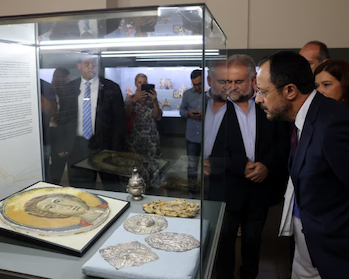At sixty-two, Darius became the only king recorded in the bible to ascend the throne as a senior citizen.
Oftentimes, wisdom is associated with the elderly but it didn’t quite turn out so, as Darius slipped into certain errors that every leader needs to watch out for.
It all started when, in a move towards ease of governance, he appointed a hundred and twenty governors and placed over them, three administrators. One of those administrators was Daniel. And he was exceptionally distinguished among all of Darius’ officials. Because of this, Darius began to nurse the thought of elevating him to superintend over the entire kingdom.
But as soon as his plan came to the knowledge of the other men, it did not go down well with them and they decided to nip it in the bud. They thought of executing Daniel. But Daniel was a hard nut to crack. They were not going to find any secular basis to ensnare him.
Daniel’s devotion to Yahweh was not a secret. They figured that was the only route they could exploit. So they decided to ask the king to endorse a decree demanding that everyone in his realm offer prayers to none else but him within thirty days. And anyone who fails to comply would be thrown into the lions’ den.
That way, Daniel would be taken out without them lifting a finger.
Their plot was not a bound-to-succeed strategy. There was nothing ingenious about it save the tricky five testing points it had. Each of these points is a tricky pitfall that could trip off any leader. Whether their plan would fail or sail through depended on if Darius would recognise the snares embedded in the mischievous request and consequently evade them. Alas, unsuspecting Darius missed them all!
So, what are these five pitfalls every leader must be weary of?
#1. Instant needless offers with strange conditions
The men’s proposal came out of nowhere. There was nothing whatsoever that precipitated the need for such a decree. Has there been a recurrent report of people praying without answers? Why should they suddenly be asked to pray to Darius? The decree was an empty one that would solve no puzzle, answer no need or serve any purpose.
To make it more befuddling, they added an unimaginable punishment for defaulters: death in the lions’ den! Why would such a needless recommendation attract such a heinous verdict?
One would expect that after presenting their request to the king, they would return at a later date for a response. But these men had other ideas, they demanded immediately that the king “establish the decree and sign the writing” (Daniel 6:8). Why the haste? Did they not expect the king to think over it or make consultations?
Poor Darius, if only he could discern their motives, he would have queried the need, the conditions and the immediacy of their demand.
#2. Plans meant only to glorify self
One wonders if Darius asked himself, why people should pray to him, a mere mortal. Did he possess any supernatural prayer-answering powers? Considering that there were gods in the land, did Darius not consider such decree a direct affront to them? Did he possess any extraordinary hearing capacity as to hear all the requests the people will make from their different locations? If he could hear all their supplications, how many would he be able to grant? If we assume, he had enough to respond to petitions about material things, would he be able to meet requests for non-material things?
If Darius had looked closely, he would have seen that the whole decree would achieve nothing more than glorify him and boost his ego. It was a road to self-aggrandisement and he did not notice. This is the most subtle of all because massaging our self-importance and ego often feels good to the human nature within us. It could then become difficult to see through the smoke.
#3. Propositions with no benefit to God or men
It is worrisome that the entire effort would answer no prior need. It is more disturbing that the plan would attend to no foreseeable challenge. It is hard to see any benefit that the decree will bring to the people or to God. Rather it posed a huge threat to the kingdom – one that could potentially lead to unnecessary loss of lives. In all probability, Daniel may not have been the only one guilty? What if they were fifty? Or a hundred? Darius would have signed into law, a death trap for his people with nothing good in exchange. And there is no way that would have been pleasing to God.
#4. Demands that relevant authority aren’t privy to
Darius had appointed a hundred and twenty-three officials yet one was missing at that meeting. The whereabouts of Daniel, should have engaged the king’s mind when all his leaders came to him.
If it was true that all of them had agreed to the proposal, why did Daniel not come with them? Did Darius ask? How is it that his wisest and most preferred associate was not present at such a strategic meeting of the empire? Or did he not notice the notable exclusion of his most outstanding official?
Was it not utterly necessary that the man he was considering for the general superintendence of his realm be present at a meeting where a decree that would affect the entire realm was being discussed? Being Daniel’s boss, did he receive any request from him seeking excuse from duty that day? Whatever happened to Daniel, if the matter was so urgent, why did he not summon Daniel to appear instantly before him? Darius certainly did not think along these lines else, the execution of that dubious plot would have failed woefully.
#5. Programmes with no potential for enduring impact
As if these concerns were not enough, the exercise would last only thirty days! If something was not fishy, why would they pray to him for only thirty days and not throughout his reign? Of what use is devotion to you for a month when everything ends after that? Who will they pray to afterwards? If they could return to the one they prayed to previously, why interrupt, when you have no plans to sustain the programme? Besides, what positive legacy was it going to leave behind in the minds of the people and the kingdom’s posterity? Was Darius not bothered about all these?
It is clear that the whole project was unsustainable and offered no hint of enduring legacy or positive impact afterwards. But Darius slumped all the same into this and the other pitfalls and Daniel was trapped with the mischievous law.
The frantic efforts Darius made after realising the mess he had put himself in, exposes his initial failure to carefully consider the idea his aides sold to him. He paid for it, no doubt. He underwent emotional torture and physical stress (Daniel 6:14). He would be grateful it was no more than that because anything could have happened. And if Daniel had been killed by the lions, Darius would probably never be able to forgive himself – even if he later executed the other officials together with their families.
Overall, God demonstrated his sovereignty by rescuing Daniel unscathed. But, if there’s anything Darius’ blunder showed, it is how these leadership pitfalls have no regard for age or experience. They are snares that we should always be wary of regardless of what heights we have attained or what level of leadership we are in.
By Ogaga Eruteya
 Ogaga Eruteya is a Nigerian ordained pastor, poet, inspirational speaker and a scientist by profession. He was born and raised in Oyo – a historically significant Yoruba town – to Isoko parents. His name Ogaga Oghene means God’s power and he has been a true testament to this, having witnessed interventions that could only be divine on a number of dire occasions. He figured he needed to take writing seriously when he noticed that he had a plethora of scribbles and snippets all over his phones, notepads, and fragments of paper. He lives and serves God in Lagos. Read his amazing works here: www.faithandliving.com
Ogaga Eruteya is a Nigerian ordained pastor, poet, inspirational speaker and a scientist by profession. He was born and raised in Oyo – a historically significant Yoruba town – to Isoko parents. His name Ogaga Oghene means God’s power and he has been a true testament to this, having witnessed interventions that could only be divine on a number of dire occasions. He figured he needed to take writing seriously when he noticed that he had a plethora of scribbles and snippets all over his phones, notepads, and fragments of paper. He lives and serves God in Lagos. Read his amazing works here: www.faithandliving.com













